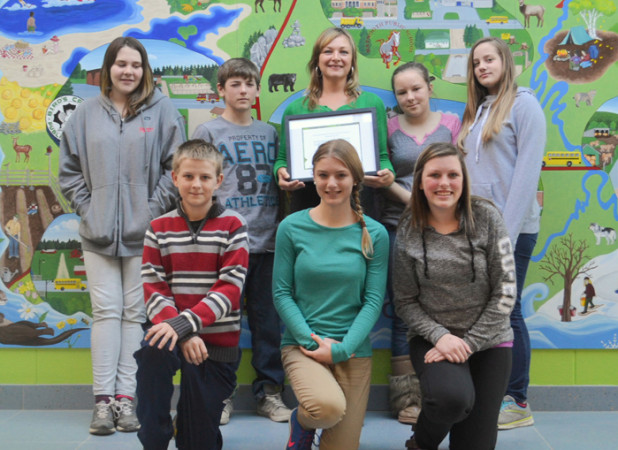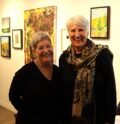Headline News » Uncategorized
Bancroft Forest Industry wins education award
April 16, 2015

Theodore Roosevelt, one of the founders of the Conservation movement in North America, was eloquent about the need for forests; he once wrote “A people without children would face a hopeless future; a country without trees is almost as helpless.”
The members of the Bancroft Area Forest Industry Association, or BAFIA for short, certainly agree. Founded nearly 20 years ago, BAFIA is an incorporated group of forestry companies – loggers, sawmill operators, foresters, forest technicians, woodlot owners and managers who operate on both Crown and private land. Many members are small, family-owned businesses, some over a century old. But while the average member may run only a smaller scale operation, BAFIA’s goals are pretty sizable. Their first priority is to give a voice to the forest industry in the area (BAFIA’s turf runs from Madoc to Whitney, and from Denbigh to Minden). They want to get the views of those who make their living through forestry across to lawmakers, and to the public.
Their other prime concern is to promote sustainable forest development. To quote Teddy Roosevelt again, “A forest should be seen, not as a storehouse of timber, but as a factory for wood. The conservation of resources is our fundamental issue.” Appropriately enough, Roosevelt wrote this to American school children. Carrying on this legacy, BAFIA recently won provincial recognition for its work with area schools.
The Susan Wiecek Award was presented to BAFIA by Forests Ontario “in recognition of their outstanding contributions to forestry education in Ontario”. The effort it recognizes is called Forestry Day, a now annual outing by grade 7-8 students to a woodland to learn about current forest management methods. The program was set up by BAFIA vice-president Virginia deCarle, in an effort to dispel myths about logging and teach young people about sustainable forestry. A graduate of Algonquin College’s forest technician program as well as an avid hiker and camper, deCarle wanted to connect young people with nature, not just technology.
The first Forestry Day, held at Joy Bible Camp three year ago, drew about 150 students. This year’s event, being held at O’Hara’s Mill conservation area near Madoc in late May, will attract more than 300. The students will visit various stations showing wood not just as a construction material but as the main ingredient of products varying from violins to canoes. They will also study tree marking, wildlife protection, tree planting and harvesting.
In further education work, the association also works with the NERDS environmental classes at North Hastings High School on an ongoing basis, teaching about resource management and forest stewardship.
A further aspect of BAFIA’s work for sustainability is the development of its standards of practice. These stress harvesting limits, and recommend the use of certified foresters in drawing up a harvesting plan.
BAFIA also aims to educate the general public about the role of forestry in the region’s economic health. The association states that forestry generates a thousand direct jobs in the area, which in turn generates many more secondary jobs. To help develop the local economy, BAFIA is now promoting the “100 Mile House” – the use of wood and building materials from within a hundred mile radius when building or adding to one’s home or cottage. In February, association members came together with wood workers and users for a seminar on “working wood”. Among other recommendations from this session were to have municipalities specify local wood in their building contracts, and to have Hastings County identify the natural resource sector as a focus in its economic development planning.
As BAFIA president Larry McTaggart states: “We live in the middle of the largest boreal forest in the country. The forestry industry works hard to manage and sustain this heritage; we want people to respect this work by supporting local enterprise.”
Past president Ernie Demuth added: “We take the long view in our development plans – a 50 year outlook. We’re one of the few businesses that constantly thinks that far ahead. That’s the way to promote long-term sustainable and vital growth.”

















